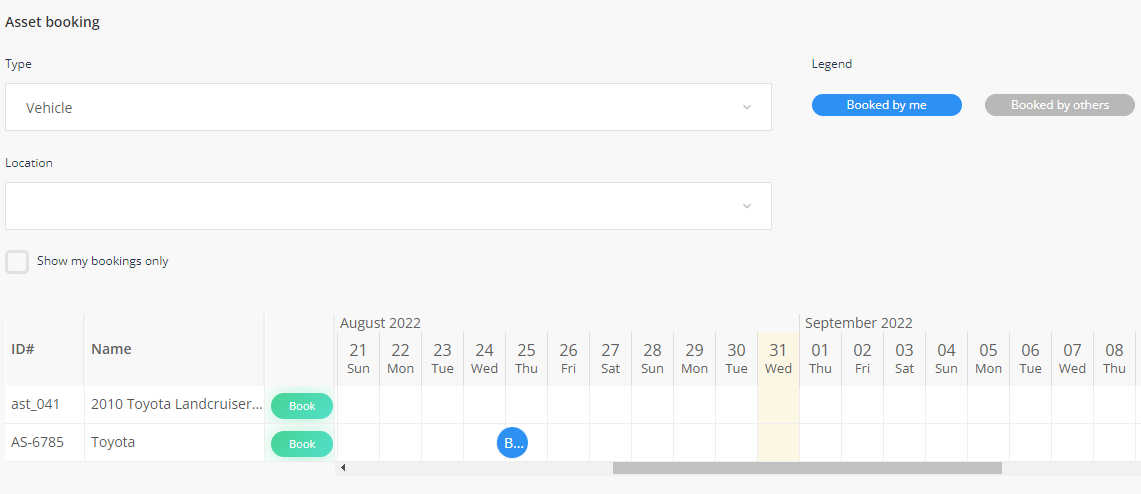The Asset Booking add-on allows users to create and manage their own bookings of available assets.
Key features:
- Asset availability report
- Asset booking page for ‘self-serve’ booking of assets.
- Booking confirmation email.
- Integration with MS Outlook calendar (with SSO activation)
- Asset utilisation report in the Analytics page.

Asset booking (Optional add-on)
The Asset Booking add-on allows users to book or 'check-out' an asset for a fixed period of time.
The Asset Booking feature makes it easier to manage and large numbers of bookable assets by allowing users to 'self-serve' and make and manage their own bookings. Once booked, users receive a confirmation email and, if SSO is configured, the booking also automatically appears in the user’s Outlook calendar.
How to make an asset bookable
In the Asset details form select 'Allow asset to be booked'. Completing the 'Notes for users booking the asset' is highly recommend as this text will appear when the user books the asset and in the confirmation email. We also recommend adding a photo of the asset as this will also be displayed to the user during the booking process and will help with identification.
Using the Asset Booking feature with the Property Management feature
The Property Management feature activates a 'Property' option in the Asset type menu. Selecting this option reveals property related fields and the property booking component. While all users can see the Property availability report from their Account menu, they cannot book the property. The Property Management feature assumes that property bookings are managed centrally by users with access to the Asset Details form in the Asset register. The Asset Booking add-on allows users to book or 'check-out' an asset for a fixed period of time
Using the Asset Booking feature with the Allocations component
The Asset booking component and the Allocations component can be used in conjunction with each other. This means that an asset can be allocated to a user but also remain bookable. This could be useful for vehicles that are allocated to a staff member for home garaging but remain bookable by other staff during the day.

